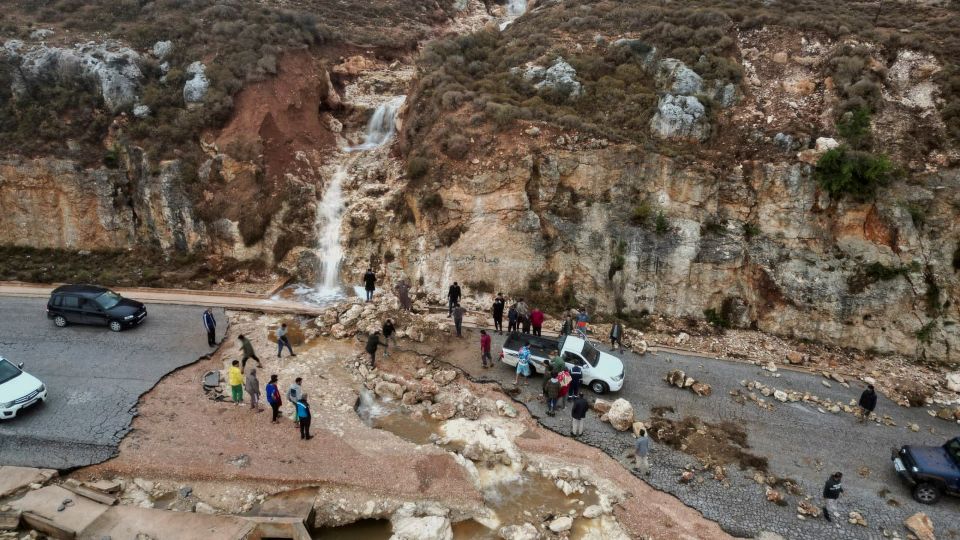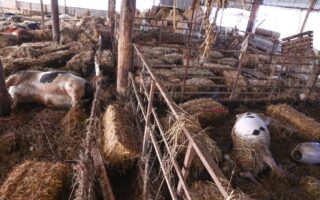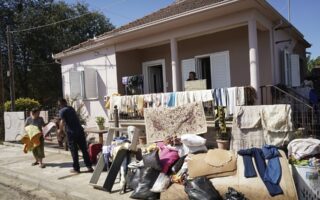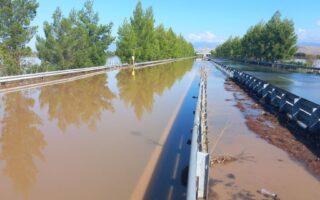Mediterranean’s devastating Storm Daniel may be harbinger of storms to come

Storm Daniel, which wrought devastation across the Mediterranean in the past week, killed 15 people in central Greece where it dumped more rain than previously recorded before sweeping across to Libya where over 2,500 died in a huge flood.
As the storm moved along the North African coast, Egypt’s authorities sought to calm its worried citizens by telling them Daniel had finally lost its strength. “No need to panic!” Al Ahram newspaper wrote in its online English-language edition.
But global warming means the region may have to brace in future for increasingly powerful storms of this kind, the Mediterranean’s equivalent of a hurricane known as a “medicane.”
“There is consistent evidence that the frequency of medicanes decreases with climate warming, but the strongest medicanes become stronger,” said Suzanne Gray from the meteorology department at Britain’s University of Reading, citing a report by the Intergovernmental Panel on Climate Change.
For Greece, the storm that formed on September 4 followed a period of blazing heat and wildfires.
In Libya, the town of Derna was deluged by water that flooded down hills into a wadi, a usually dry riverbed, smashing through two catchment dams and sweeping away a quarter of the coastal town.
At least 10,000 people were feared missing, according to the International Federation of the Red Cross and Red Crescent Societies.
Climate expert Christos Zerefos, secretary general of the Academy of Athens, said storm data had not been fully compiled yet but he estimated the amount of rain to fall on Libya equalled the 1,000 mm (1 metre) that fell on Thessaly in central Greece in just two days.
He said it was an “unprecedented event” and more rain drenched the area than ever recorded since records began in the mid-19th century.
“We expect such phenomena to happen more often,” he added.
But experts said the impact on countries around the Mediterranean would be uneven, proving most destructive to those with the least means to prepare.
Libya, which has endured more than a decade of chaos and conflict and which still does not have a central government that can reach across the country, is particularly at risk.
“The complex political situation and history of protracted conflict in Libya pose challenges for developing risk communication and hazard assessment strategies, coordinating rescue operations, and also potentially for maintenance of critical infrastructure such as dams,” said Leslie Mabon, lecturer in environmental systems at the Open University in Britain.
Before Storm Daniel struck, hydrologist Abdelwanees A.R. Ashoor of Libya’s Omar Al-Mukhtar University had warned that repeated flooding of the wadi posed a threat to Derna.
Yet even better-resourced Greece struggled to deal with the power of Storm Daniel. Homes were swept away, bridges collapsed, roads destroyed, power lines fell and crops in the fertile Thessaly plain were wiped out.
Greek authorities said on Monday that more than 4,250 people had been evacuated from villages and settlements in the region. [Reuters]





